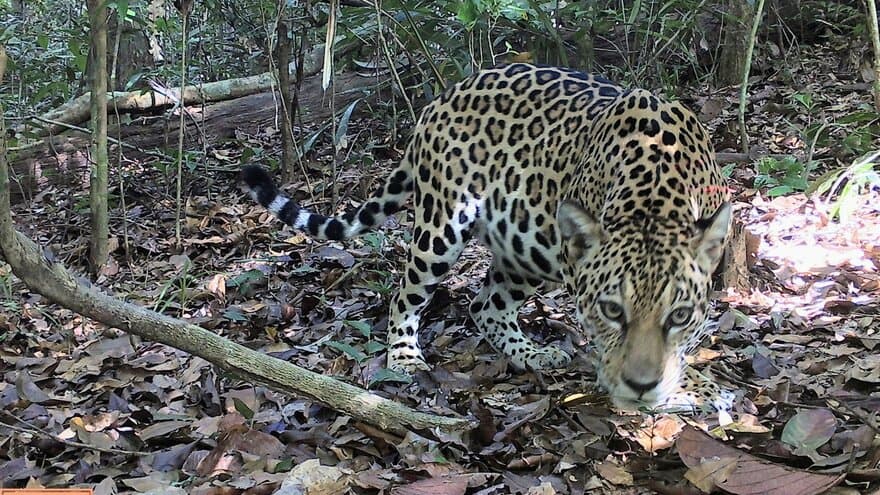Elildo Alves Ribeiro de Carvalho Jr’s doctorate shows that both legal and illegal harvesting impacts on animals in the Amazon, but that these impacts are generally moderate.
Tropical forests play a disproportionate role in providing biodiversity, ecosystem services and human welfare on a global scale. They are the most biodiverse terrestrial ecosystems on earth. They cover approximately seven percent of the land surface, but harbour more than half of all living species.
“Historically, tropical forests have already lost more than one-third of their original cover,” PhD candidate Elildo Alves Ribeiro says.
Additionally, forest degradation, by which anthropogenic impacts reduce or severely constrain ecological processes shaping forest dynamics is a serious problem.
“In many areas, degradation rates surpass forest loss.”
At the global level, more than half of the remaining forests therefore only have medium to low ecosystem integrity or are recovering from past disturbances. These disturbed forests have substantially lower biodiversity levels than primary forests.
Evaluated logging effects on wildlife
In his PhD, Elildo has evaluated the impact of selective logging on wildlife conservation in the Brazilian Amazon. He has used camera traps to investigate the effect of contrasting logging regimes on medium- to large-sized mammals and birds, as well as the status and trends of the Black-winged Trumpeter (Psophia obscura), a critically endangered bird.
In addition, he has evaluated the potential loss of food resources for frugivorous vertebrates in areas exploited for timber. In his project he compared contrasting logged landscapes: Jamari National Forest, where forest concessions operate under reduced-impact logging (RIL), and Gurupi Biological Reserve, which was illegally logged for several decades until very recently. His methods comprised of a combination of wildlife data collected by camera traps and on-site forestry surveys.

Species persisted despite logging
Elildo found that site-level mammal species richness in Jamari was negatively related to logging intensity, and positively related to density of logging roads. However, no individual species responded significantly to these factors and all species were retained in the landscape.
“This suggests that reduced-impact logging may be a reasonable compromise between production and conservation,” he comments.
Elildo also found that illegal logging had a negligible effect on species relative abundances, medium- to large-sized mammals and bird, this time in Gurupi.
“This indicates that even illegally logged forests retain conservation value, provided they are protected from further impacts,” he says.
Prefers mature forests
He has also looked in-depth at the Black-winged Trumpeter (Psophia obscura), a critically endangered bird.
“My results show that the species is a habitat specialist that prefers areas with more than a decade of post-logging recovery and with a structure like mature forest.
Occupancy rates of the species remained stable throughout the study, demonstrating that even illegally logged forests can play a role in the conservation of this forest specialists.
Low logging may affect resources for fruit-eating animals
Elildo has also used data from forest inventories conducted by concession companies to estimate losses of animal-dispersed trees resulting from direct harvest in Jamari.
“Animal-dispersed trees dominate the forest but are significantly less targeted for logging than abiotically-dispersed trees,” Elildo says.
“Still, at least ten percent of the large animal-dispersed trees were lost in the landscape, indicating that even low logging intensities can reduce frugivore resources.”
Taken together, the results indicate that although both legal and illegal harvesting have impacts on medium- to large-sized vertebrates, these are generally moderate so that logged forest landscapes retain their full species complement.
Promoting sustainable forest management
Elildo’s results are important input into conservation strategies in production forests and promoting sustainable forest management practices.
“It is important to emphasise that such case studies are best-case scenarios coming from protected areas,” he says.
“It is very important to protect logged forests from additional anthropogenic impacts to maintain their conservation value,” he concludes.
Elildo Alves Ribeiro de Carvalho Jr will defend his thesis “Effects of selective logging on Amazonian wildlife” on Wednesday the 22nd of March, 2023. The trial lecture and defense are open to all.
